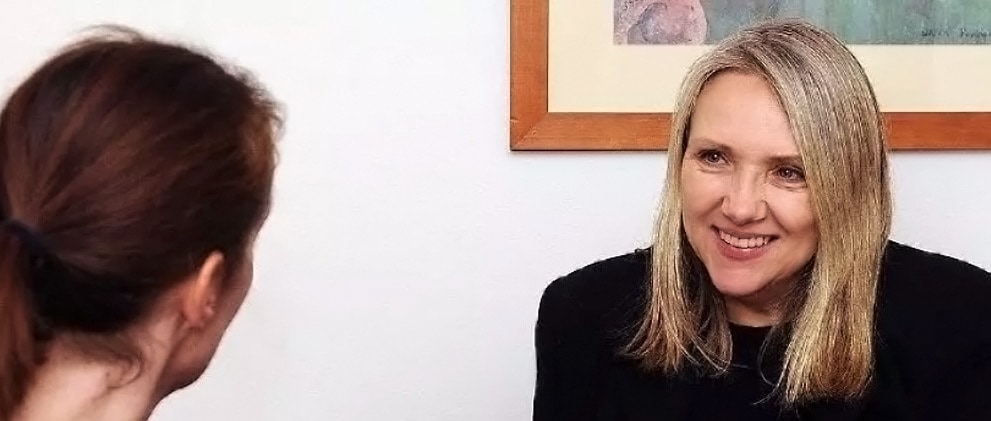Rising Potency Means Rising Concern Melbourne's Exclusive Rehab for Drugs & Alcohol For Over 20 Years
What is Marijuana addiction?
What is marijuana withdrawal?
Marijuana is a commonly abused illicit drug.
Over time, the body builds up tolerance to & physical dependence on marijuana. When the marijuana use is stopped, the user will experience a range of uncomfortable symptoms due to the body and brain adjusting to lack of the substance in the body. This known as withdrawal, and withdrawal symptoms can vary from mild to severe.
The intensity and discomfort of symptoms can make it difficult to stop using. Attending a residential detox and rehab program can increase your chances of successfully stopping your marijuana use.
Marijuana Addiction Treatment
Marijuana addiction can have significant short and long term consequences on a person’s physical & mental wellbeing, relationships, finances and work ventures.
The longer the addiction is left unmanaged, the more severe the consequences can be. Early intervention from experienced addiction professionals can dramatically increase your recovery chances.
A residential detox and rehab program can be a critical step in getting off marijuana, building healthy habits, understanding your addiction and creating a life you feel happy with.
Medically Supervised detox and Rehabilitation for Marijuana Addiction Residential medically supervised detox in a safe and caring environment is recommended for individuals withdrawing from marijuana.
The length & severity of withdrawal symptoms for marijuana depends on the duration & severity of the addiction as well as whether other substances were being abused. Typically, withdrawal can begin within 24 hours of last use. Withdrawal symptoms can peak at around 3 days off marijuana and more mild symptoms can continue for several months after stopping.
An experienced doctor and nursing staff help you manage your symptoms and support you through any physical and mental health concerns that may arise during your detox. This helps minimise the risk of complications and relapse. A residential rehab program can support you in understanding the underlying issues that led to addiction and develop the tools necessary to live a life that works for you.


Mental Health Issues
Mental health disorders and cannabis addiction have a particularly high rate of co-occurring. Dual Diagnosis is the term given when a co-occurring disorder has been detected.
Persons suffering from affective disorders (i.e. depression and bipolar disorder) or anxiety disorders (i.e. post-traumatic stress disorder, obsessive-compulsive disorder and panic disorder) are often found to have issues with substance dependencies. The National Survey of Health and Wellbeing concluded that no less than 35 % of Australians suffering from affective or anxiety disorders also struggle with substance abuse.
What is Marijuana Abuse?
Marijuana abuse can be as serious as other types of substance use disorders, with less severe long-term effects. Most people who seek treatment have been using the substance daily for years or decades. For some individuals, it can be a problem and they fail to seek treatment believing they are not addicted.
Individuals experience several factors that lead them towards the road to addiction. Those who have pre-existing psychiatric conditions are more likely to experience addiction to marijuana. Abuse can also co-occur with existing substance abuse problems such as cocaine or alcohol.


How can Marijuana Detox Help?
The team at Rehabbed understands that accepting that you have a marijuana addiction is difficult. It is easy to believe that the substance is not addictive. Self-blame can also happen if additional problems arise from an addiction. Rehabbed can help you or your loved one be aware of the conditions and treat them at their source.
Regardless of what lead to the abuse of marijuana, it can affect an individual’s life immensely and lead to further conditions. We can help you understand the addiction, its underlying factors, and provide consistent support to re-establish self-confidence. Our treatment approach builds upon years of training and using advanced, modern, methods backed by a history of success.
If you have a recognized an addiction problem with a friend or family member and truly care about their well-being, you must call Rehabbed and discuss our treatment options.
Personal Rebuilding for the Future
Effects of Marijuana
One of your goals at a Melbourne marijuana rehab will be to explore, through therapy and holistic treatment options, how marijuana addiction negatively impacted your life and why you continued to abuse the drug despite those negative consequences.
Marijuana addiction affects us spiritually and psychologically as well as emotionally and physically. By understanding the why and how of marijuana addiction, we can learn to recognize dangerous situations in the future that may tempt us to use and learn new coping skills so that we don’t repeat behavior that will only hurt us and those we love.
A Melbourne marijuana rehab gives you the chance to create a better future for yourself without marijuana addiction.
Rehabbed Can Help You Recover From Drug Addiction
Marijuana refers to the dried leaves, flowers, stems, and seeds from the Cannabis sativa or Cannabis indica plant. The terms cannabis and marijuana are often used interchangeably. Extracts from the plant can be made into hash oil or wax. Cannabis products contain the mind-altering chemical delta-9-tetrahydrocannabinol (THC). They can also contain more than 400 other chemicals.
People who use marijuana may roll loose marijuana leaves into a cigarette (called a joint) or smoke it in a pipe or a water pipe, often referred to as a bong. Some people mix marijuana into foods (called edibles) or use it to brew a tea. Another method is to slice open a cigar and replace some or all of the tobacco with marijuana, creating what is known as a blunt. Some people are vaping—using electronic vaporizers (called e-vaporizers or vapes) that allow people to inhale vapor and not smoke. Another popular method on the rise is vaping THC-rich resins extracted from the marijuana plant, an often dangerous practice called dabbing.
When people smoke marijuana, they feel its effects almost immediately. The psychoactive chemical THC spreads to every organ in the body, including the brain, and attaches to specific receptors on nerve cells. This affects the areas of the brain that control pleasure, memory, thinking, concentration, movement, coordination, appetite, pain, and sensory and time perception.
THC is structurally similar to chemicals produced naturally by the body, called endocannabinoids, which play a role in normal brain development and function. Because of the endocannabinoid system's wide-ranging influence over many critical functions, marijuana can have multiple effects—not just on the brain, but on a person's general health. Some of these effects last only as long as marijuana is in the body while others may build up over time to cause longer-lasting problems, including addiction.
Although detectable amounts of THC can remain in the body for days or even weeks after use, the noticeable effects of smoked marijuana usually last from 1 to 3 hours. If consumed in foods, the effects come on slower and can last for many hours.
Short-term effects (while using or right after using)
- learning, attention, and memory problems
- distorted perception (sights, sounds, time, touch)
- poor coordination and motor skills
- increased heart rate
- anxiety, paranoia
- psychosis (not common)
Effects that last longer than the short term (a few days) but may not be permanent
- learning and memory problems
- sleep problems
Long-term effects (effects of repeated use)
- risk of marijuana addiction
- long-term learning and memory problems
- if heavy use begins during youth
- risk for chronic cough, bronchitis
- risk of schizophrenia in some people with higher genetic risk
- in rare cases, risk of recurrent episodes of severe nausea and vomiting
Like any other drug, marijuana's effects on a person depends on many factors, including the person's previous experience with the drug or other drugs, biology (e.g., genes), how the drug is taken, and the drug's potency (its strength).
Potency—the amount of THC contained in the marijuana—has been increasing steadily in the past few decades as marijuana farmers respond to market demand. These findings are based on analyses of marijuana samples seized by law enforcement.
So what does this actually mean? For someone new to the drug, it may mean exposure to higher concentrations of THC, with a greater chance of a negative or unpredictable reaction. For those more experienced with marijuana, it may mean a greater risk for addiction if they are exposing themselves to high doses on a regular basis. However, the full range of consequences linked with marijuana's higher potency is not well understood. It is unknown how much people who use marijuana adjust for the increase in potency by using less.
The majority of people who use marijuana do not go on to use other "harder" substances, like cocaine or heroin. However, some research shows that people often try marijuana before trying other substances. We also know from animal studies that rats given repeated doses of THC show heightened behavioral responses and altered brain activation not only when further exposed to THC, but also when exposed to other drugs such as morphine. Researchers are now looking at the possibility that exposure to marijuana as a teen can cause changes in the brain that make a person more likely to get addicted to marijuana or other drugs, such as alcohol, opioids, or cocaine.
It is important to point out, however, that research has not fully explained any of these observations, which are complex and likely to involve a combination of biological, social, and psychological factors.